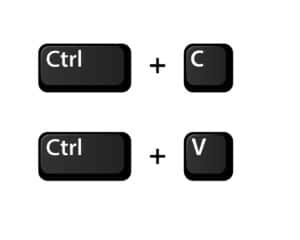Server-side tagging is a technique used by digital marketers and analysts to track and analyze website traffic and user behaviour. It involves sending data from a server to a third-party analytics tool, rather than relying on client-side tracking methods, such as JavaScript tags.
There are several benefits to using server-side tagging, which can greatly improve the accuracy and effectiveness of your digital marketing and analysis efforts. In this blog post, we’ll take a closer look at some of the key benefits of server-side tagging and how it can help you get the most out of your website and digital marketing campaigns.
Improved accuracy and reliability: One of the primary benefits of server-side tagging is that it provides more accurate and reliable data. With client-side tracking methods, data can be compromised or lost due to various factors such as browser caching, ad blockers, and JavaScript errors. Server-side tagging, on the other hand, is not affected by these issues and ensures that data is consistently collected and transmitted to your analytics tool.
Enhanced security: Server-side tagging is also more secure than client-side tracking methods. Since data is transmitted from the server to the analytics tool, it is not visible to users and cannot be tampered with or altered. This is especially important if you are collecting sensitive data, such as personal information or financial transactions.
Better performance and scalability: Server-side tagging can also help improve the performance and scalability of your website. Client-side tracking methods often require additional JavaScript tags to be loaded on the page, which can slow down page load times and potentially affect user experience. With server-side tagging, data is transmitted directly from the server to the analytics tool, eliminating the need for additional tags on the page and improving performance.
Greater control over data collection: Another advantage of server-side tagging is that it gives you greater control over what data is collected and how it is used. With client-side tracking methods, data is often collected by third-party JavaScript tags that may have their own tracking and data collection practices. With server-side tagging, you have more control over the data that is collected and can ensure that it is used in accordance with your own privacy policies and data protection regulations.
Enhanced flexibility and customization: Server-side tagging also provides greater flexibility and customization compared to client-side tracking methods. With server-side tagging, you have the ability to define your own variables and parameters and can customize the data that is collected to meet your specific needs. This can be particularly useful if you have a complex or customized website or need to track specific user actions or behaviors.
In conclusion, server-side tagging is a powerful technique that can provide numerous benefits for digital marketers and analysts. It offers improved accuracy and reliability, enhanced security, better performance and scalability, greater control over data collection, and enhanced flexibility and customization. If you are not currently using server-side tagging, it may be worth considering as a way to get the most out of your website and digital marketing efforts.


